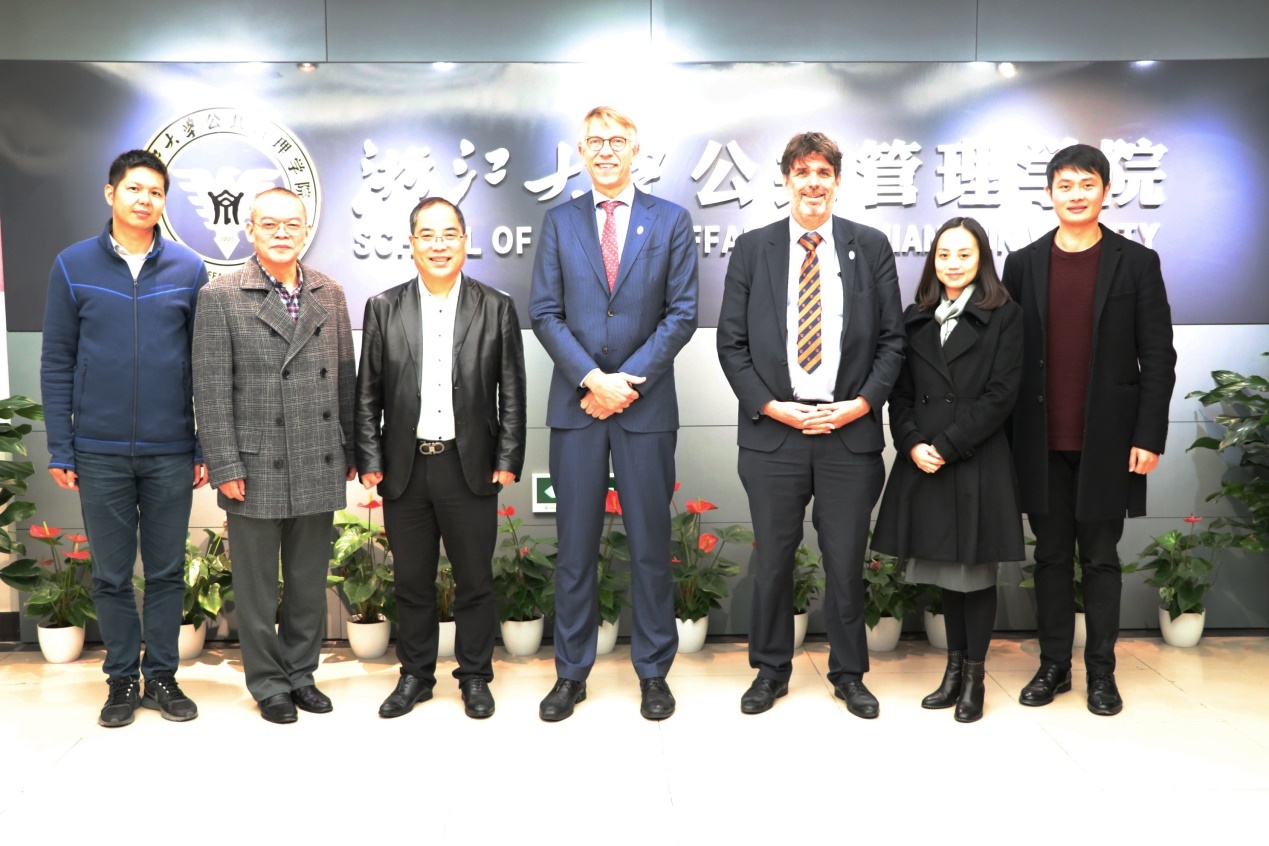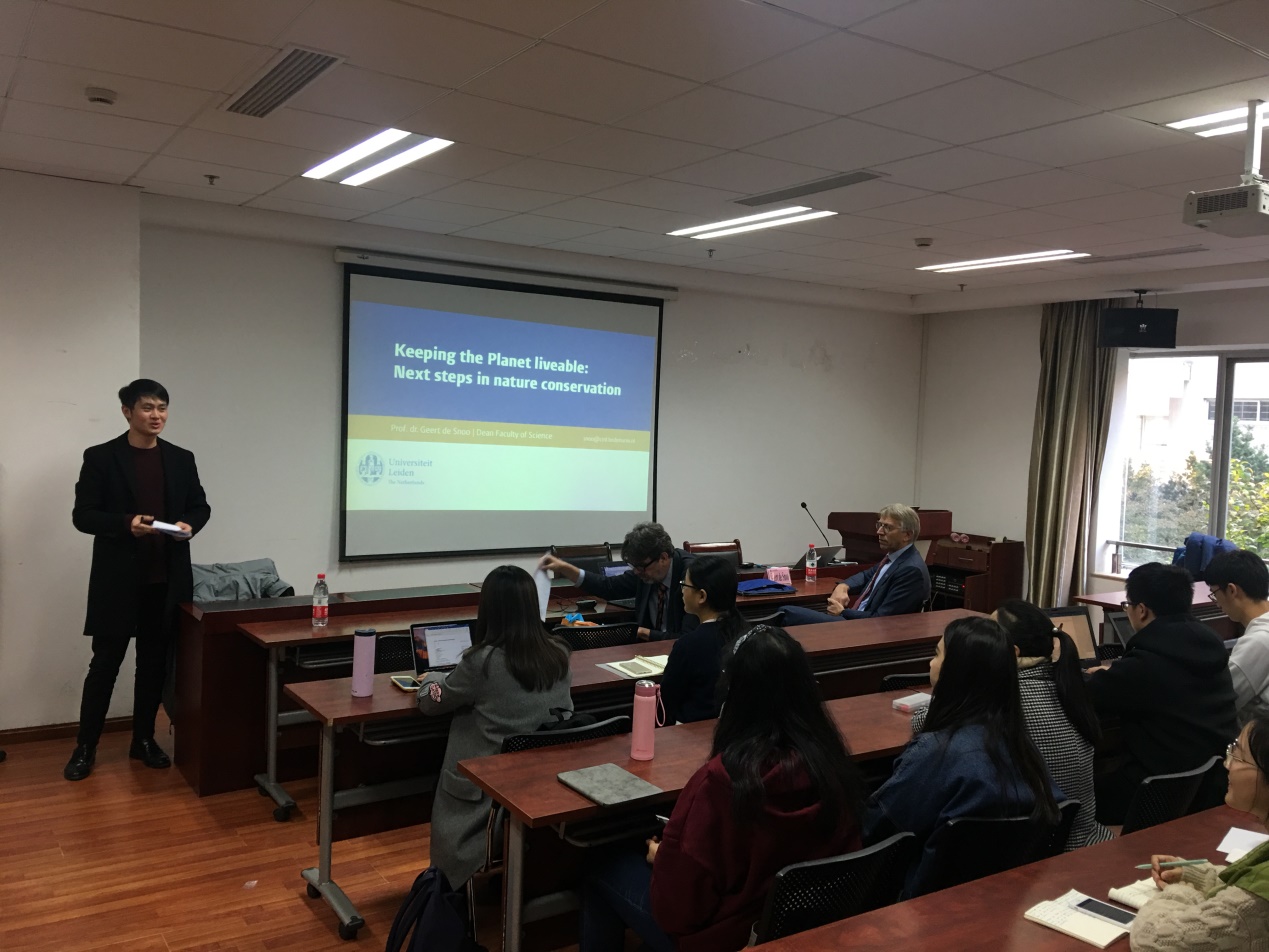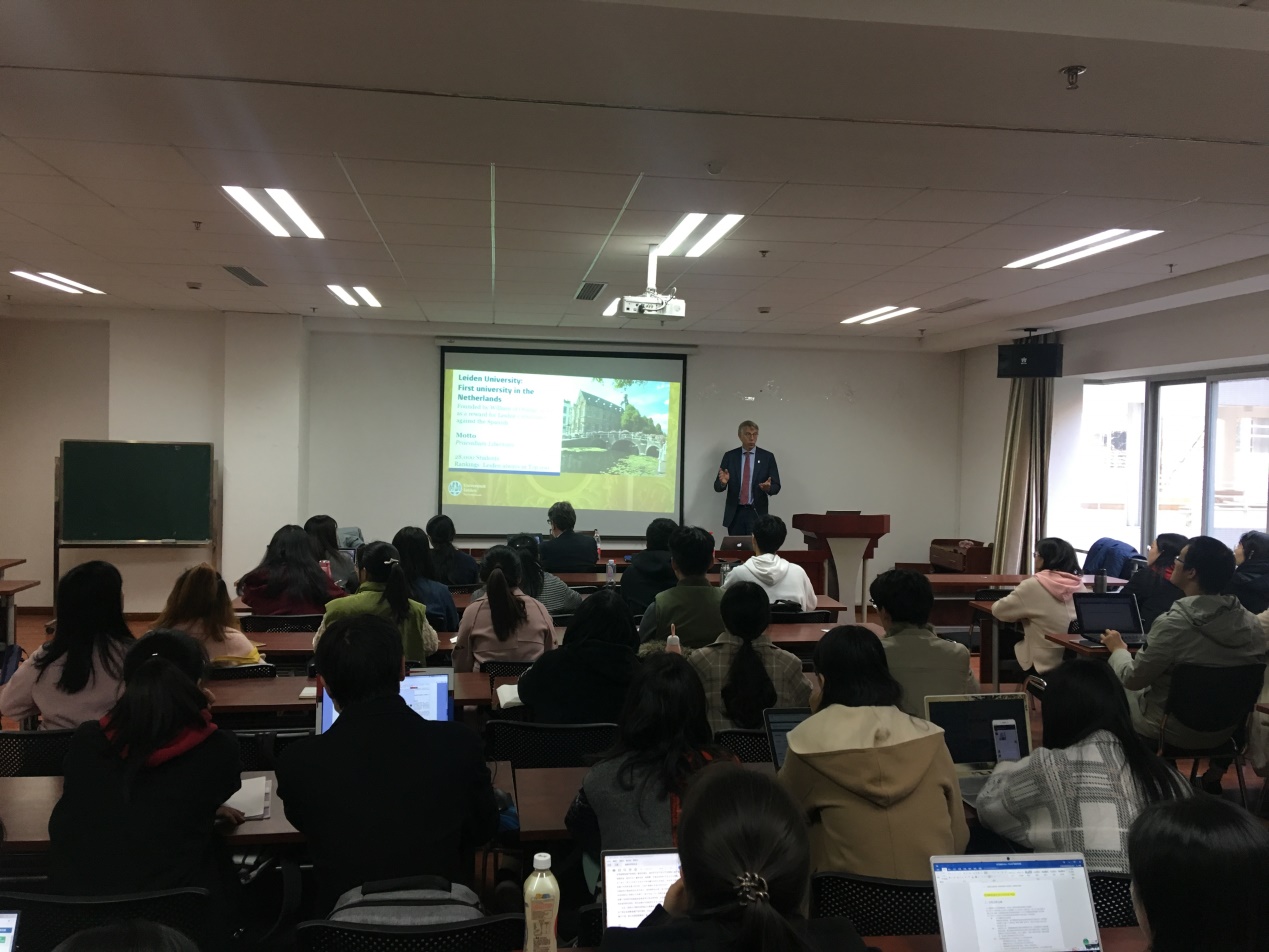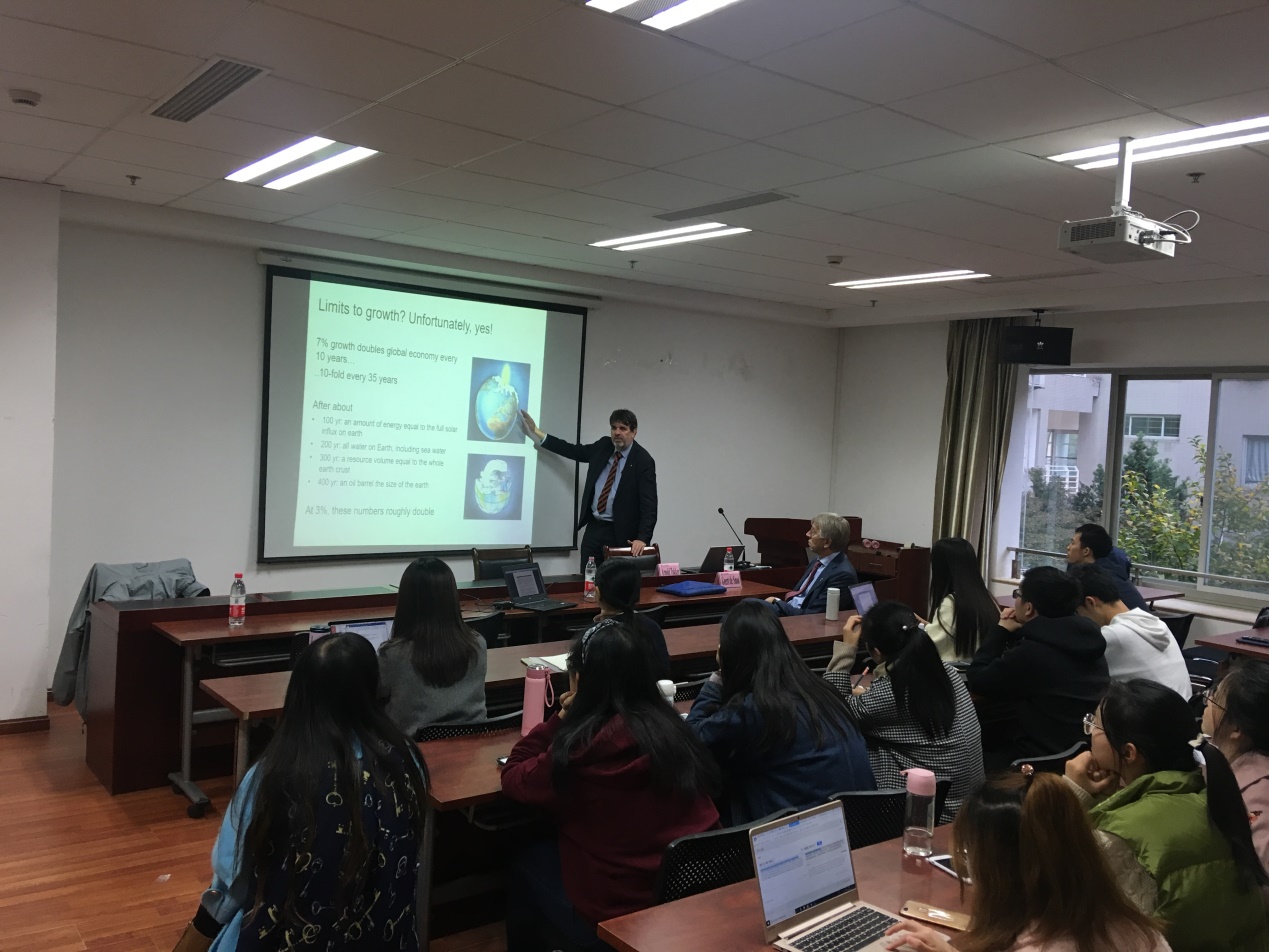On the afternoon of November 22, 2018, Professor Geert de Snoo, Executive President of Leiden University as well as Dean of the Faculty of Science and Professor Arnold Tukker, Director of Institute of Environmental Sciences visited SPA and gave two impressive lectures. Professor Yu Jianxing, Dean of SPA and Professor Wang Shizong, Chair of Department of Government expressed their warm welcome to the two professors. Following the lectures, the two sides exchanged ideas extensively and discussed future cooperation and development.

The lecture was hosted by Fang Kai, member of Talents Program of Zhejiang University and research fellow of SPA, with a brief introduction to Leiden University as the beginning. Founded in 1575, Leiden University is the oldest institution of higher education in the Netherlands and one of the most prestigious universities in Europe. The university employs over 6500 staff members, one-third of which work in the Faculty of Science, which has 8 institutes including Institute of Environmental Sciences, Institute of Biology, Institute of Physics, Institute of Chemistry, etc.

Professor Geert de Snoo delivered a lecture entitled “Keeping the Planet Livable: Next Steps in Nature Conservation”, in which he first described the origin of nature conservation and introduced the course of conservation based on the case of the Netherlands. Then, focusing on the quantitative relationship between agricultural production and biodiversity conservation, Professor Snoo vividly demonstrated the negative correlation between agricultural output and biodiversity. Finally, Professor Snoo summarized the main models and experience of biodiversity conservation in the Netherlands and proposed policy recommendations for its sustainable development.

Professor Arnold Tukker proceeded to give another lecture addressing the challenges of shortage of resources, entitled “Towards a Circular Economy--benefits for China and Europe”. To begin the lecture, Professor Tukker presented major global issues concerning sustainability, especially the shortage of resources. He then introduced the global Environmental Input-Output analysis model and detailed its function in assessing regional resource and environment pressures. Moreover, he demonstrated how to apply the model to evaluating domestic carbon emission, water consumption, land use and material consumption. Professor Tukker pointed out that resource competition among countries becomes increasingly fierce; therefore, to boost the efficiency of resource utilization is the crux of the matter. As for circular economy, Professor Tukker mentioned it is inevitable that the future of circular economy development will depend on innovation in theory, technology and business model. Besides, supportive policy is also a powerful driving force for regional circular economy, and both China and EU have great potential in this regard.

The lectures captivated the audience. In the question-and-answer session, they interacted with the professors and raised questions concerning China’s industrial transformation, marine environment protection, cost-effectiveness of resource recycling, the relationship between economic development and resource consumption, etc. Professor Snoo and Professor Tukker answered patiently and provided a wide range of perspectives from the main goals and measures of nature conservation, to notions of circular economy and methods to achieve it. At the end of the event, Fang Kai gave a closing comment and expressed special thanks to the professors for their spiritual feast.


